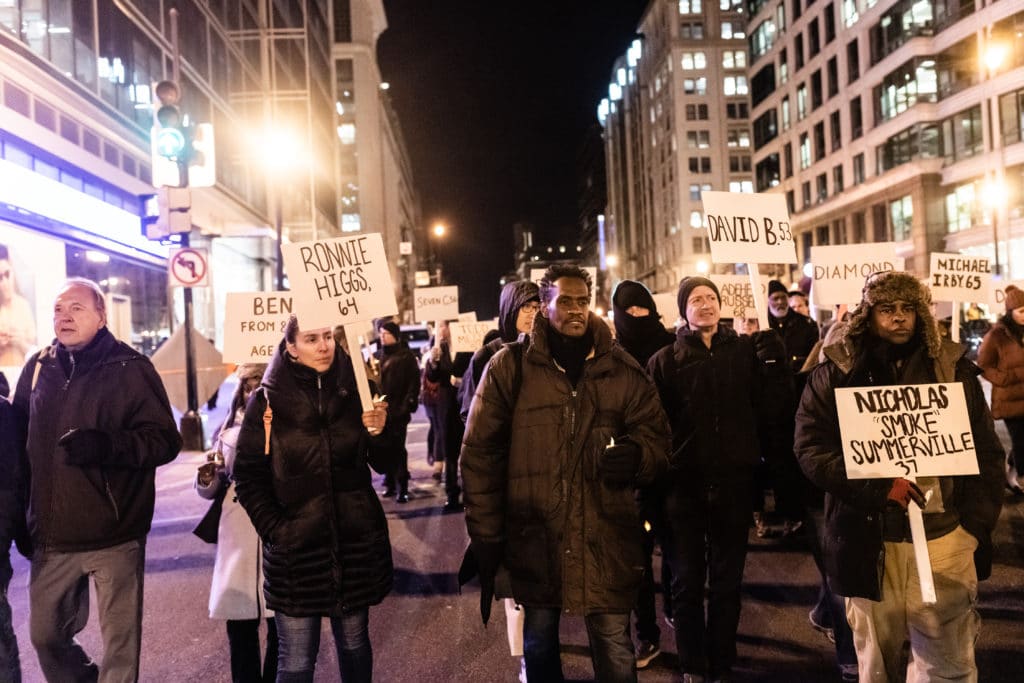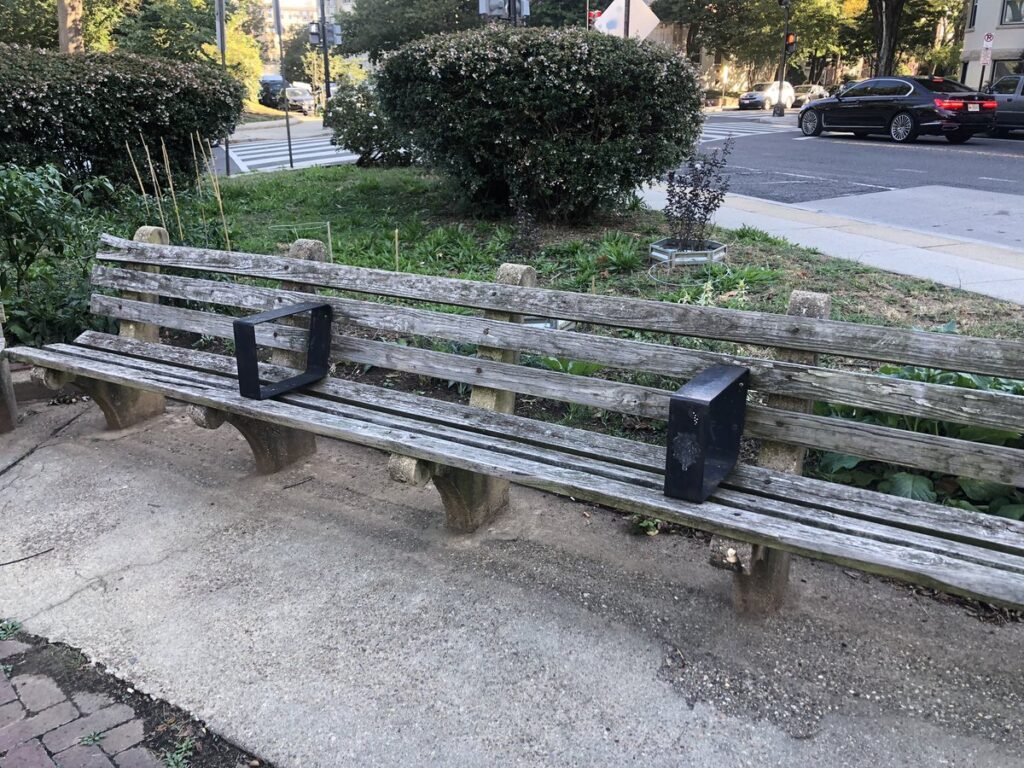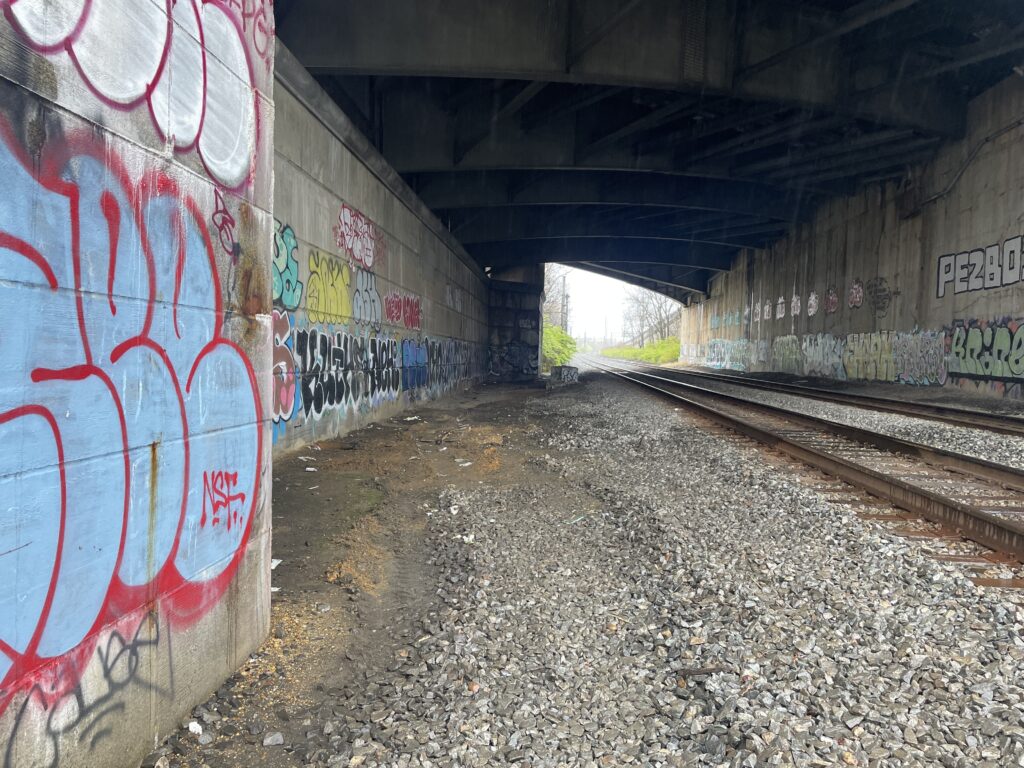About 70 people gathered at Luther Place Memorial Church on Dec. 20 to remember the hundreds of people who have died without a home during the past decade in the District of Columbia.
In 2021, 69 people died while homeless in the city, according to the People for Fairness Coalition (PFFC), a homeless advocacy group that organized the overnight vigil. Every year for the past three years, PFFC has attempted to collect the names of people who died without a home. In 2020, they counted 70. The year before, they counted 81. The actual count, however, might be much higher. In 2020, the D.C. Office of the Chief Medical Examiner, which gathers similar data, published a report revealing that 180 people who died in the District that year were “undomiciled.”
At the vigil, PFFC reported that an additional 141 people who had previously experienced homelessness had also died in 2021 — this is close to the number of people who died after moving into housing in 2020.
PFFC organized the vigil, which they’ve conducted every year since 2013. This year, Miriam’s Kitchen, the Way Home Campaign and other homelessness advocacy organizations participated and representatives spoke to attendees. Only 15 people could conduct the vigil in 2020, due to COVID-19 precautions and social distancing measures. Last year, the event was streamed for public viewing on Zoom.
[Read More: Annual vigil goes virtual to remember people who died without a home in DC this year]
“I’m very sad to be here tonight, for this year and the year before,” said Maurice Cook, one of the night’s speakers and the executive director of mutual aid organization Serve Your City DC. “I’m sick and tired of people dying on the street.”
Street Sense vendor Marcus McCall, who has been homeless for 10 years, spoke at the vigil about how the pandemic put what felt like insurmountable pressure on his ability to cope. “I was afraid,” McCall said. “I kinda snapped a little bit, mentally.”
McCall said he had a more positive outlook on his future after finding a way to earn an income and obtain medical treatment. “The journey is not over,” McCall told the community. “Please don’t give up. Please don’t.”
One of the many people whose life was celebrated at the vigil was Waldon Adams, a Way Home Campaign advocate and Pathways to Housing outreach specialist known across the homeless community. Adams died in a hit-and-run in April.
“This guy is a super guy,” Kevin Coates, another advocate attending the vigil said. “You mention that name, everybody knows him.”
Multiple speakers criticized Mayor Muriel Bowser’s CARES pilot program, which cleared large encampments throughout the city. The program has been widely criticized as aggressive, due to its use of police and bulldozers. The office is actively attempting to secure apartment leases for people they cleared from this area, but according to PFFC outreach director Andrew Anderson, the rate at which people are being housed does not match the pace of encampment cleanups.
“[The pilot program] is not moving fast enough. There are going to be more people on that list waiting for housing,” Anderson said.
He asked the attendees to reflect on a list of people who died experiencing homelessness this year. “If this continues, their names will show up on this list.”
Other people who attended the vigil offered similar criticisms, including Jesse Rabinowitz, senior manager of policy and advocacy for Miriam’s Kitchen, one of the organizations that helped hand out information sheets and answer questions people had about the event. Rabinowitz said the cleanups are harmful and disruptive to encampment communities, and that they violate Centers for Disease Control guidelines, which discourage encampment clean-ups because upending people and their belongings increases the spread of disease, including COVID-19.
“It’s not lost on me that [on] National Homeless Persons’ Memorial Day, we are memorializing the 69 people who died without housing in the street, D.C. Council is voting to pause encampment evictions, and also at the same time, the Mayor will be evicting [residents of] an encampment in Ward 4,” Rabinowitz told Street Sense. He says he hopes the council chooses to prioritize housing over evicting encampments.
In reaction to the pilot program, Ward 1 Councilmember Brianne Nadeau, with support from three other councilmembers, introduced emergency legislation on Dec. 6 to pause encampment clearings. Nadeau and other councilmembers called on the Office of the Deputy Mayor for Health and Human Services and the D.C. Department of Human Services to instead focus on providing people living on the streets with adequate housing options and access to medical services.
However, on Dec. 21, with five yes votes, seven no votes and one absence, the council failed to pass the emergency declaration. By voting no to the declaration, the council voted that there is no emergency, and thus voted against the amendment.
After speeches, a casket representing the hundreds of people who died without a home in this city was carried from the church by community members who marched down 14th Street NW to Freedom Plaza while chanting “housing is a human right!”
Upon reaching a large tent in Freedom Plaza, PFFC served food and laid out a table with free warm clothes.
PFFC then conducted an open forum where participants engaged in the virtual conversation from Freedom Plaza and enjoyed hot tea and Wi-Fi provided by The Humanities Truck, a mobile truck with a large display screen. It also played “Street Reporter,” a documentary featuring local housing rights advocates Sheila White and Reginald Black.
Around eight people who planned to sleep in the tent gathered inside to stay warm. Earlier in the day, according to multiple individuals present, the U.S. National Park Service denied PFFC use of the park’s electricity, citing recent COVID-19 surges. The group was not able to secure electricity until about 10:30 p.m. when they used a generator to power heat lamps and lighting for the tent.
“I believe next year some housing needs should be [met] with some of the numbers. We have a lot of homeless people out here due to the coronavirus and due to lack of case management,” McCall said, “but I believe next year when we do this event again we should be speaking of who’s been housed and actually celebrating.”
The casket was carried to the Church of the Epiphany mid-day on Tuesday, where an interfaith memorial service was held, to read the names of everyone who died.
Ben Gutman contributed reporting.








